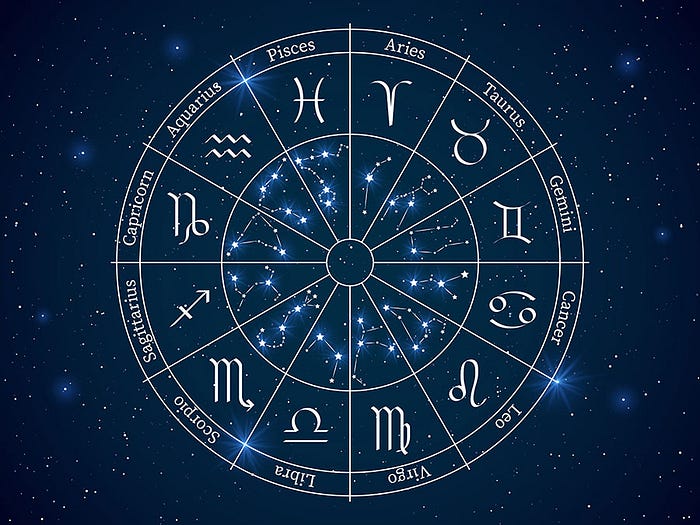# Astrology: An Ancient Fallacy That Persists Today
Written on
Chapter 1: The Illusion of Astrology
Astrology has been debunked for over two thousand years, yet it still captivates many. Here are some compelling arguments against it.
This paragraph will result in an indented block of text, typically used for quoting other text.
Section 1.1: The Nature of Pseudoscience
Isn't it comforting to think that the positioning of celestial bodies shapes our personalities and destinies? It seems both reassuring and flattering to believe that the universe dictates who we are. However, those who embrace astrology might hesitate at the thought of living in a deterministic universe, similar to what astrologers propose. While our lives are influenced by a complex web of causality, astrology itself is baseless—a fact recognized for centuries.
Marcus Tullius Cicero, the Roman statesman and philosopher from the first century BCE, vehemently criticized astrology in his work, On Divination. He condemned the Stoics for believing in such nonsense. One of Cicero's arguments highlights that while we observe powerful natural events like storms, which clearly affect our environment, we have no reason to assume that the distant planets exert any influence on our lives or characters.
He states:
"In view of the fact that the heavens are now serene and now disturbed by storms, is it the part of a reasonable man to say that this fact has no natal influence — and of course it has not — and then assert that a natal influence is exerted by some subtle, imperceptible, well-nigh inconceivable force which is due to the condition of the sky, which condition, in turn, is due to the action of the moon and stars?" (On Divination, II.94)
Cicero further notes the undeniable impact of heredity on our traits, both physical and behavioral. If cosmic forces dictated our characteristics, we wouldn't see such strong familial resemblances:
"Surely, no one fails to see that the appearance and habits, and generally, the carriage and gestures of children are derived from their parents. This would not be the case if the characteristics of children were determined, not by the natural power of heredity, but by the phases of the moon and by the condition of the sky." (On Divination, II.94)
Section 1.2: Historical Context and Criticism
Cicero also points out that individuals sometimes share similar fates despite being born under vastly different astrological signs. He references the Battle of Cannae, where many Romans lost their lives regardless of their horoscopes:
"Did all the Romans who fell at Cannae have the same horoscope? Yet all had one and the same end." (On Divination, II.97)
Cicero's critique can be seen as an early foray into what we now refer to as pseudoscience. Damian Fernandez-Beanato, in his analysis, emphasizes that Cicero essentially laid the groundwork for distinguishing science from pseudoscience, long before Karl Popper introduced the concept in modern philosophy.
Despite the advances made in debunking pseudoscience since Cicero's time, challenges remain. In 1975, a group of scientists led by Paul Kurtz issued a manifesto denouncing astrology, stating:
"Scientists in a variety of fields have become concerned about the increased acceptance of astrology in many parts of the world... Now that these distances can and have been calculated, we can see how infinitesimally small are the gravitational and other effects produced by the distant planets and the far more distant stars."
Astrology's persistence can be attributed to a longing for certainty in an unpredictable world. Many seek solace in the idea that their fate is determined by cosmic forces.
Chapter 2: Modern Scientific Perspectives
The first video, "The History of the Zodiac and Astrology - Ophiuchus, the Forgotten Star Sign," delves into the background of astrology and discusses the lesser-known zodiac signs.
The second video, "Neil deGrasse Tyson Explains the North Star and Why Your Zodiac Sign Might Be Wrong," examines the scientific inaccuracies associated with traditional zodiac signs.
While the fight against pseudoscience continues, even prominent figures like Carl Sagan expressed reservations about overly critical approaches to astrology. He felt that dismissing astrology merely as superstition failed to address its current relevance or the psychological needs of its adherents.
Paul Feyerabend, another notable philosopher, criticized scientists for their lack of understanding of astrology, suggesting that their dismissal stemmed from a position of ignorance.
In 1985, Shawn Carlson conducted a pivotal double-blind study published in Nature, aiming to rigorously test astrological claims. His experiment involved collaboration between scientists and astrologers to ensure the integrity of the methodology.
Carlson aimed to validate the core premise of natal astrology: that celestial positions at birth can reveal personality traits and life challenges. The study comprised two parts:
- Participants selected from three natal charts: one created for them and two random ones. Astrologers predicted a success rate of at least 50%, while the scientific hypothesis suggested a 33% chance.
- Astrologers matched a random subject's natal chart to personality descriptions, again predicting better than random selection.
After eliminating potential biases, the results were revealing. In the first part, participants selected the correct chart at a rate of 33.7%, statistically insignificant compared to random guessing. In the second part, astrologers also performed no better than chance, with a success rate of 34%.
Ultimately, Carlson's findings reinforced the notion that astrology lacks empirical support. Despite the ongoing popularity of astrology—approximately 30% of Americans still believe in it—the evidence overwhelmingly suggests otherwise.
As Aristotle pointed out, there exists a significant difference between objective truth and the ability to sway public opinion. While reason and facts are clear, the challenge remains to persuade the masses to acknowledge them.
